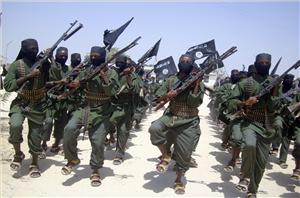By Delisa Morris
Impunity Watch Reporter, South America
QUITO, Ecuador — Litigation that began in 1993 continues to forge on. In 1993, a group of attorneys filed a class action suit in New York on behalf of Ecuadorian farmers and indigenous tribes in Ecuador against the oil giant Texaco. Texaco produced oil in the Amazon during the 70s until the 80s. After nine years, the case was dismissed because of a lack of jurisdiction. The court stated that the suit should be brought in Ecuador.

In 2001, Texaco was acquired by Chevron. Steven Donziger, another New York attorney later took over the case and used celebrity support, sympathetic media coverage and financial backing from hedge funds to restart the case in Ecuador in 2003.
In the mean time, no one has cleaned up the oil. Waste oil remains in open pits near rural hamlets and people drink from oil contaminated streams daily.
Eight years after the restart in 2003, the suit led to a $19billion verdict against Chevron. The company’s liability was confirmed by Ecuador’s top court, but the damages were reduced to $9.5billion.
Even after the damage cut, Chevron refused to pay for three reasons: it’s impossible to tell Ecuador’s pollution apart from Chevrons, Texaco had cleaned up its fair share of pollution and received a blanketed release by the Ecuadorian government and according to Chevron, Donziger used fabricated evidence, coercion and bribery to win the suit.
Just when the Ecuadorians believed that they would have clean drinking water, or a new medical center to take care of their oil induced injuries, Chevron filed a countersuit in 2011.
Chevron’s countersuit basically accused Donzinger of conducting a corporate shakedown. This past March a U.S. District Judge agreed and invoked the Racketeer Influence and Corrupt Organizations (RICO) Act. Judge Kaplan concluded that the litigation against Chevron was irrevocably marred by fraud and corruption, orchestrated in large by Donziger. The judge said Donziger had forged court documents, bribed Ecuadorian judges and submitted false technical documents disavowed by his own paid experts. The judge decided to punish both Donziger and his clients, the Ecuadorian farmers and indigenous tribes for his wrongdoing.
Was this a fair outcome for the Ecuadorians?
Donziger has appealed the judgment and a federal appellate court in New York will hear arguments in the upcoming month. Meanwhile, the highest court in Canada, is reviewing if the decision from Ecuador can be enforced in Canada where Chevron has extensive operations.
International legal correspondent Michael D. Goldhaber states “hope was that the Ecuador case would for the first time establish non-U.S. courts as a viable alternative to hold companies accountable when they are complicit in wrongs overseas.”
For more information, please see:
Bloomberg Businessweek – A Way to Clean Up Ecuador’s Oil Mess – 18 Sept 2014
Forbes – Ecuador, Chevron and Steven Donziger: The Travesty Described in Detail – 8 Sept 2014
Huff Post Business – How Chevron’s Scientists Misled Courts and Public About Death and Disease in Ecuador – 18 Sept 2014
Rolling Stone – Sludge Match: Inside Chevron’s $9billion Legal Battle With Ecuadorian Villagers – 28 Aug 2014



